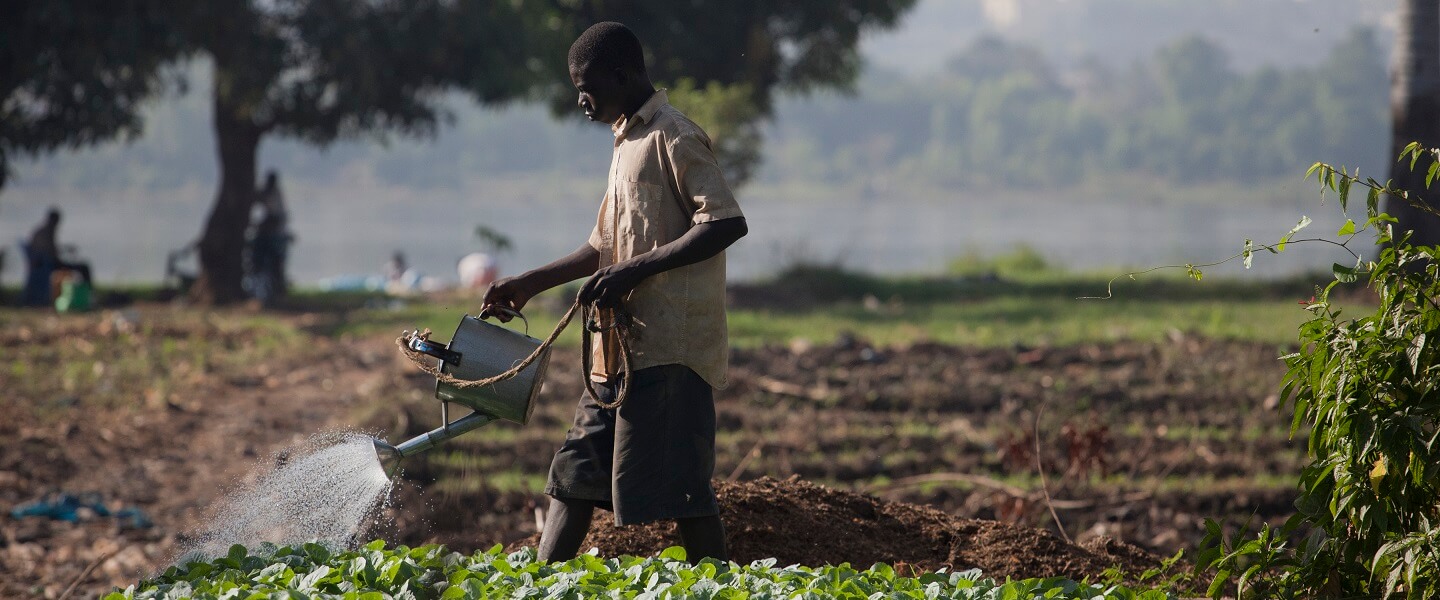
Small-scale irrigation is a farmer-led approach that allows smallholder farmers to access and manage water for irrigation. Unlike large-scale government irrigation schemes, small-scale irrigation does not require huge public investments or complex infrastructure. Farmers can use various technologies and practices, such as buckets, treadle pumps, solar pumps and drip kits, to extract water from various sources, such as wells, rivers, ponds and rainwater harvesting systems. They can also choose the crops and methods that suit their needs and preferences.
Small-scale irrigation has many benefits for farmers and their communities. It can increase agricultural productivity and incomes by enabling farmers to grow high-value nutritious crops that need more water than rainfed crops. These crops include vegetables, fruits, spices, and herbs. They can also grow these crops throughout the year, even in the dry season, when food prices are high and food insecurity is common.
Small-scale irrigation can also improve food security, nutrition and health for farmers and their families. It can provide a steady supply of fresh and diverse foods that are rich in vitamins, minerals and antioxidants. These foods can enhance the quality of diets and prevent micronutrient deficiencies, such as anaemia and vitamin A deficiency. They can also boost the immune system and reduce the risk of chronic diseases, such as diabetes and hypertension.
Small-scale irrigation can also contribute to climate change adaptation and mitigation. It can help farmers cope with droughts and floods by providing a reliable source of water for their crops. It can also reduce greenhouse gas emissions by saving water and energy compared with other irrigation methods. For instance, drip irrigation can reduce water use by up to 60% and energy use by up to 50% compared to sprinkler irrigation.
Small-scale irrigation is not without challenges, however. Some of the challenges include lack of access to finance, markets, extension services, and quality inputs. Some farmers may also face social and cultural barriers, such as gender norms, land tenure issues and water conflicts. Moreover, some farmers may not have adequate knowledge or skills to use and maintain the irrigation technologies properly.
To overcome these challenges, small-scale irrigation needs more support and recognition from governments, donors, researchers and other stakeholders. Some of the possible actions include:
- Providing subsidies, loans or grants to help farmers acquire and install the irrigation technologies.
- Developing policies and regulations that protect the rights and interests of small-scale irrigators, especially those of women and youth.
- Strengthening farmer organizations and cooperatives that can facilitate collective action, bargaining power and knowledge sharing among small-scale irrigators.
- Promoting market linkages and value addition that can increase the demand and prices for irrigated crops.
- Providing extension services and training that can enhance the technical and managerial skills of small-scale irrigators.
- Conducting research and innovation that can improve the efficiency, affordability and sustainability of small-scale irrigation technologies.
Small-scale irrigation is a game-changer for agricultural development in Africa. It has the potential to transform the lives of millions of smallholder farmers by increasing their productivity, profitability, and resilience. It can also improve their food security, nutrition and health by providing them with fresh and diverse foods. It can also contribute to climate change adaptation and mitigation by saving water and energy. By supporting small-scale irrigation expansion, policymakers can help achieve national agricultural and development goals faster and more effectively.


















